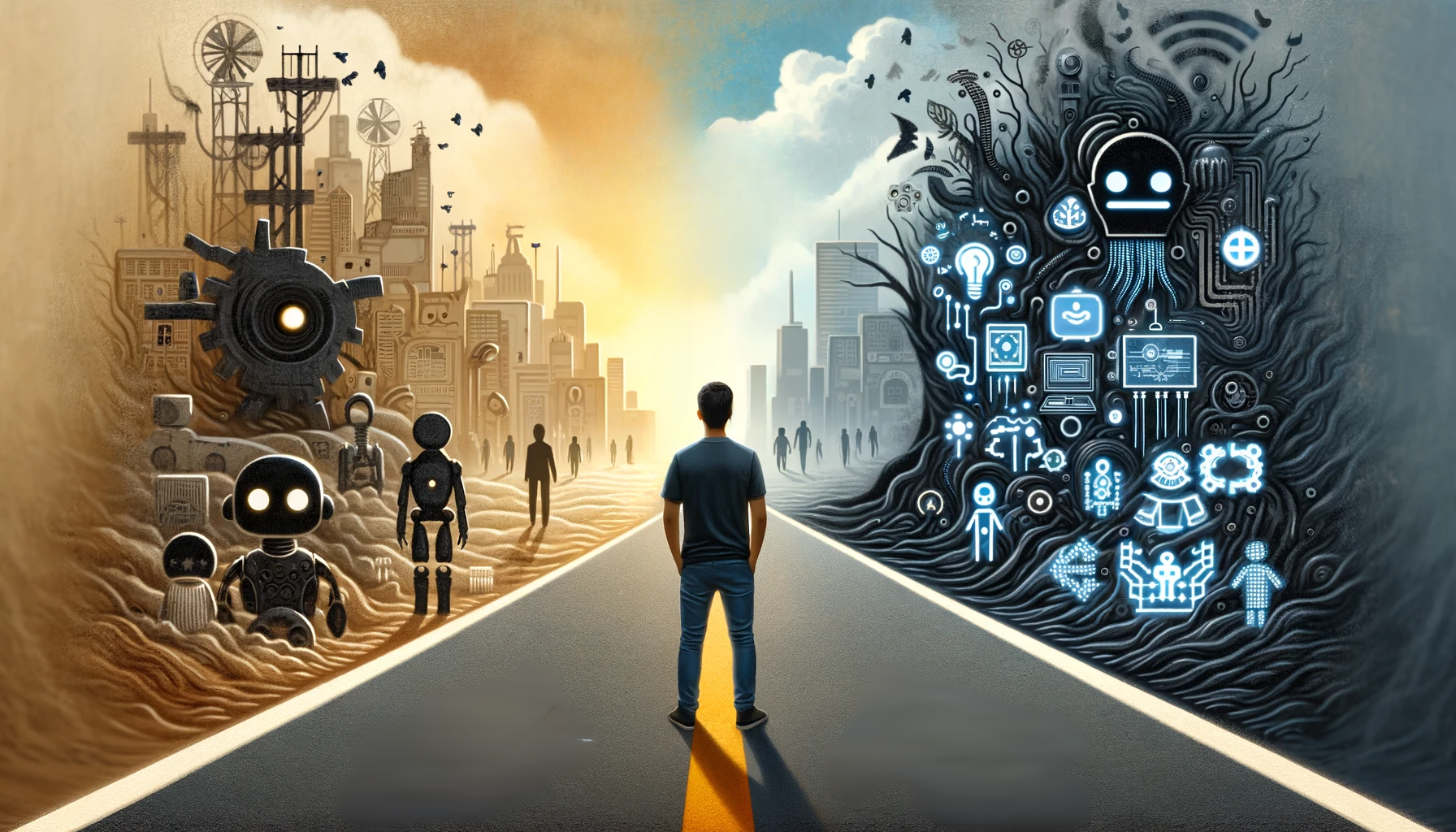AI can evoke a gut-level response. Reactions range from giddy excitement to paralyzing fear. It seems that only a small percentage of people are at either extreme. The dominant tendency is to be somewhere closer to the middle and more afraid than not. While the specific bases for different reactions are as unique as our individual personalities, there are some central themes that are worth discussing.
Anxiety generally is a feeling of worry, nervousness or unease, typically about an imminent event or something with an uncertain outcome. Uncertainness or unpredictability is a major factor when it comes to a fear of AI. Unpredictability can make something that otherwise seems inviting or safe, worthy of fear.
When thinking about this, I remembered working for a land surveying company to pay my way through school. Occasionally, we would have to survey industrial property in Detroit. One particular job site that I recall was adjacent to abandoned railroad tracks. As we were working along the back side of the property, our entire crew froze and became silent when we noticed some dogs down the tracks. We did not run and scream when we saw them. Instead, we calmly and very quietly did our work – constantly keeping an eye on them all the while thinking of the quickest way back to the truck just in case they started moving in our direction.
The fear, which was entirely appropriate under the circumstances, stopped us in our tracks. None of us were afraid of dogs in general. The anxiety in that moment was based on the unpredictability of that small pack of feral dogs.
My gut reaction at seeing those dogs that afternoon was the opposite of how I feel when encountering a familiar, friendly canine. The predictability of such a dog allows me to feel happy and open to a warm and enthusiastic greeting.
If you tend to feel scared or uneasy when considering AI, unpredictability may be the root of those feelings. There are at least two categories for that; the unpredictability associated with the outcome or results you get using AI, and the unpredictability of how AI generally will affect your future. The former can be alleviated as we develop ways to keep AI on a suitable leash – a technical challenge but one that is already being met. The solution for the latter is not technical in nature. Perhaps the answer lies in educating yourself about AI and embracing the possibilities it opens to you.
About the Author

David Gaskey
David is the CEO at Altumatim and has been at the interface between law and technology for more than three decades. Specializing in intellectual property law, he has represented clients from all over the United States, Europe and Asia, including Fortune 50 companies, whose businesses involve a broad spectrum of technologies.



